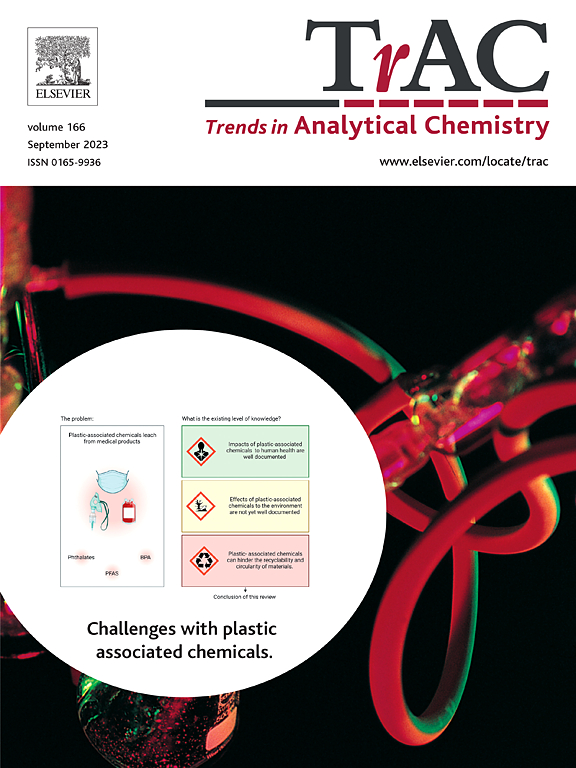Application of machine learning to improve the accuracy of electrochemical sensors: A review
IF 12
1区 化学
Q1 CHEMISTRY, ANALYTICAL
引用次数: 0
Abstract
Electrochemical sensors are devices that convert chemical signals into electrical signals, having been widely applied in various fields. However, traditional electrochemical sensors are prone to interference from various issues, which leads to inaccurate measurement results. The development of artificial intelligence (AI) technologies offers new approaches to address these issues. Among these, machine learning (ML) techniques can analyze large volumes of sensor data, identify complex patterns and relationships, and thereby enhance the accuracy and stability of sensors. This paper provides a review of the latest research over the past five years on ML applications addressing challenges such as nonlinear sensor signal relationships, low-concentration accuracy, signal drift, and interference resistance. It also summarizes the performance of various algorithms in different application scenarios. Finally, the paper discusses the challenges faced by ML technologies in improving the accuracy of electrochemical sensors and outlines future development directions.
机器学习在提高电化学传感器精度中的应用综述
电化学传感器是一种将化学信号转化为电信号的器件,已广泛应用于各个领域。然而,传统的电化学传感器容易受到各种问题的干扰,导致测量结果不准确。人工智能(AI)技术的发展为解决这些问题提供了新的途径。其中,机器学习(ML)技术可以分析大量传感器数据,识别复杂的模式和关系,从而提高传感器的准确性和稳定性。本文回顾了过去五年来机器学习应用的最新研究,解决了非线性传感器信号关系、低浓度精度、信号漂移和抗干扰等挑战。总结了各种算法在不同应用场景下的性能。最后,讨论了ML技术在提高电化学传感器精度方面面临的挑战,并概述了未来的发展方向。
本文章由计算机程序翻译,如有差异,请以英文原文为准。
求助全文
约1分钟内获得全文
求助全文
来源期刊

Trends in Analytical Chemistry
化学-分析化学
CiteScore
20.00
自引率
4.60%
发文量
257
审稿时长
3.4 months
期刊介绍:
TrAC publishes succinct and critical overviews of recent advancements in analytical chemistry, designed to assist analytical chemists and other users of analytical techniques. These reviews offer excellent, up-to-date, and timely coverage of various topics within analytical chemistry. Encompassing areas such as analytical instrumentation, biomedical analysis, biomolecular analysis, biosensors, chemical analysis, chemometrics, clinical chemistry, drug discovery, environmental analysis and monitoring, food analysis, forensic science, laboratory automation, materials science, metabolomics, pesticide-residue analysis, pharmaceutical analysis, proteomics, surface science, and water analysis and monitoring, these critical reviews provide comprehensive insights for practitioners in the field.
 求助内容:
求助内容: 应助结果提醒方式:
应助结果提醒方式:


